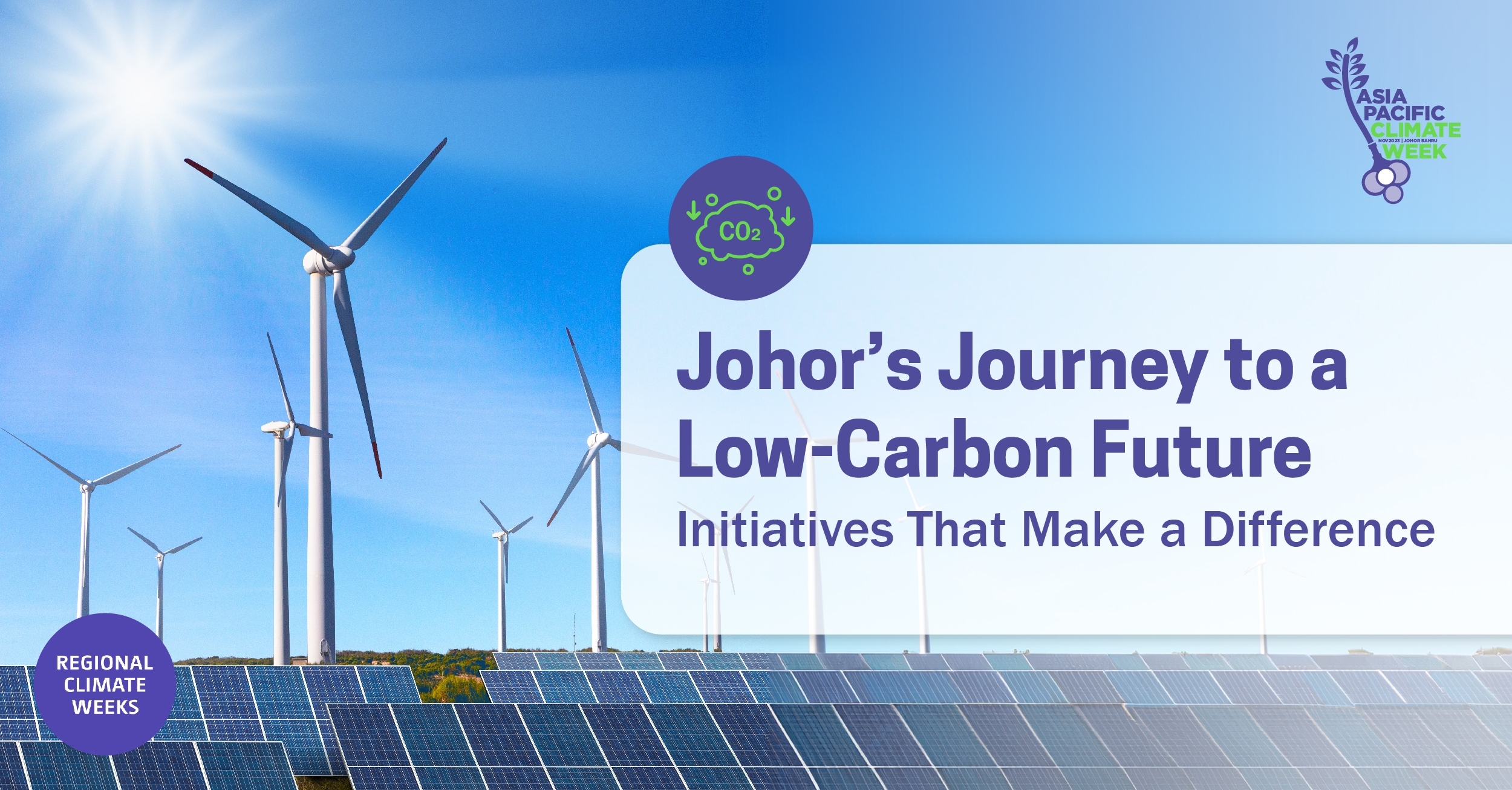
Low-carbon initiatives are important for a sustainable future.
For Johor, the host of this year’s Asia Pacific Climate Week, a low-carbon society is at the heart of its sustainability strategy. Reducing greenhouse gas (GHG) emissions, improving the quality of air and water, and fostering sustainable development can help to combat climate change and create a livable environment for the generations to come.
Achieving a low-carbon state is a shared responsibility between citizens, governments, and businesses. This year’s Asia Pacific Climate Week theme is K.E.Y., which holds profound significance and emphasises the idea that each individual holds the KEY to make a marked difference in the fight against climate change. Collective action and individual choices are also KEYS that can create a significant impact on the environment. Furthermore, K.E.Y. also stands for Keep Earth Yours — a reminder that Earth is a shared resource, and thus, both individually and collectively, we have a duty to protect and preserve it.
Here are three initiatives that Johor has rolled out to facilitate inclusive participation from various levels of the community:
Johor’s Car Free Day
Johor’s Car Free Day is a monthly activity organised by the City Council. During this time, main roads surrounding the city are closed to vehicles, allowing people to walk, cycle, and skate freely. Fun activities such as fun runs, Zumba and yoga sessions, food trucks, and live music are also a common occurrence for families to enjoy together.
Beyond its recreational appeal, the state’s Car Free Day is a demonstration of its commitment to sustainable transportation. By providing a car-free environment, it emphasises the importance of reducing residents’ reliance on vehicles, advocating for greener transport solutions, and fostering a community spirit centred around sustainability.
Bicycle lane through the city
Johor’s launch of a 15km bicycle lane this year is a significant step towards promoting sustainable transportation and reducing traffic congestion in the state. This lane runs through various parts of the city to offer cyclists a dedicated path equipped with safety measures. These include aluminium solar reflective studs, bicycle signboards, and markings to remind motorists to share the road with other users.
To further this initiative, the City Council is currently identifying potential routes for additional bicycle lanes, aiming to establish a cohesive network across major city areas. The bicycle lane is part of a larger effort to move the state towards a low-carbon future—as Johor mayor Datuk Mohd Noorazam Osman remarks, “As a city that is continuously growing towards sustainability, changes need to be made no matter how small.”
Litter picking programmes
Across Johor, multiple litter picking and clean-up programmes are held weekly to clean the city, rural areas, rivers, and public beaches. Often organised by the state government along with SWM Environment, the state’s solid waste management company, these initiatives underscore Johor’s commitment to an environmentally sustainable and clean region.
This year, a RM500 fine was also instituted for individuals found littering in public spaces. Such initiatives are designed not only for waste removal, but also to enhance recycling efforts. By diverting recyclable materials from landfills, these programmes contribute to reducing GHG emissions and conserving natural resources. To date, these combined efforts have led to the collection of over 6,180kg of rubbish in the state.
The path towards a sustainable, low-carbon future is paved by collective effort and collaboration. As Johor proudly welcomes climate partners from across the world to this year’s Asia Pacific Climate Week, it is a timely reminder that climate action, regardless of their scale, is paramount. We look forward to gathering with stakeholders this 13-17 November, together charting a brighter, more sustainable climate future for the region.
Asia-Pacific Climate Week (APCW) 2023 stands as one of four pivotal Regional Climate Weeks happening this year in the lead up to COP28 in Dubai––which will see the conclusion of the first global stocktake. As we approach this critical assessment, it is essential to gauge our collective progress and ascertain the additional measures required to ensure that our region is on track to achieve the goals of the Paris Agreement.
APCW 2023 will serve as a platform for the sharing of knowledge and best practices from across the region. Among these discussions will be the pivotal role of NAPs in shaping our collective climate future. We look forward to gathering with climate partners from across the world to explore solutions, unite our visions, and accelerate change for our region.
For more information, follow us on Facebook, Instagram, X, or LinkedIn.